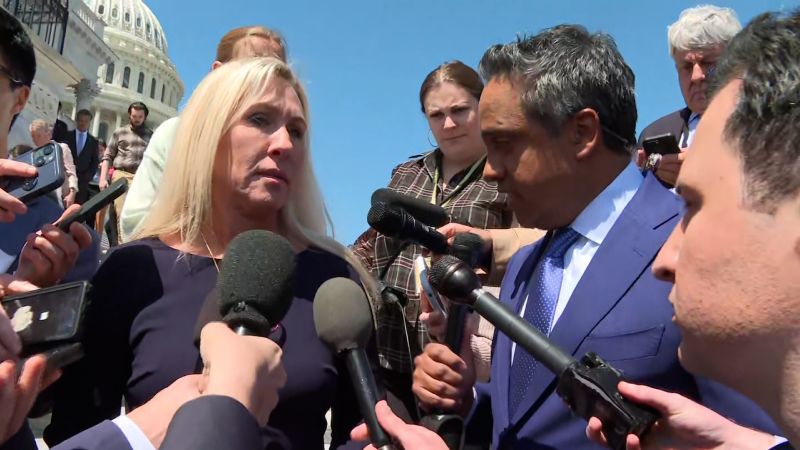In a surprising twist, Rep. Marjorie Taylor Greene of Georgia recently launched an attack on fellow Republican and House Speaker Mike Johnson of Louisiana. Greene accused Johnson of betraying Americans by allowing a vote on a series of foreign aid bills, including aid for Ukraine. She further claimed that Johnson did not have the votes necessary to remain in power. This attack came just minutes after the Ukraine aid bill passed in the House of Representatives, showcasing a stark divide within the Republican party.
The controversy surrounding Greene’s attack on Johnson highlights the deep divisions within the GOP regarding foreign aid, particularly in relation to Ukraine. While some Republicans, like Greene, are opposed to providing aid to foreign countries, others believe in supporting Ukraine and maintaining strong international relationships. Johnson’s decision to present the aid bill for a vote ultimately reflects the internal tensions within the party and the different perspectives on foreign policy and national security matters.
Greene’s vocal criticism of Johnson also raises questions about the future of House leadership within the Republican party. By publicly challenging Johnson’s leadership and suggesting that he lacks the necessary support to maintain his position, Greene has brought attention to issues of unity and cohesion within the GOP. The rift between Greene and Johnson underscores broader challenges facing the party in terms of internal dynamics and the ability to present a united front on key policy issues.
The timing of Greene’s attack on Johnson, immediately following the passage of the Ukraine aid bill, adds another layer of complexity to the situation. Greene’s comments not only create division within the Republican party but also serve to undermine the party’s efforts to address important foreign policy issues. This public confrontation between two prominent GOP members reflects a larger struggle for control and influence within the party and may have significant implications for future legislation and party leadership decisions.
Overall, Greene’s criticism of Johnson and the broader debate within the GOP over foreign aid underscore the complex dynamics at play within the party. As Republicans grapple with issues of unity, leadership, and policy priorities, the fallout from Greene’s attack on Johnson may serve as a catalyst for further internal debates and power struggles. The aftermath of this incident could shape the future direction of the Republican party and its stance on key foreign policy issues, ultimately impacting the party’s ability to present a cohesive and effective platform for voters in upcoming elections.


